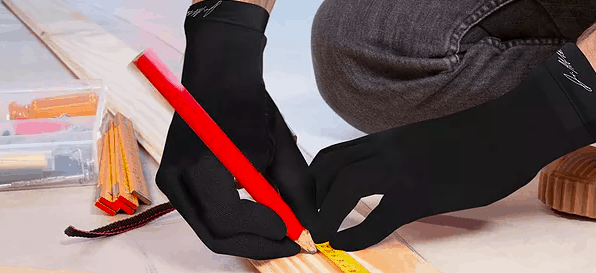With over 1 million orders

DR. ARTHRITIS SHARES: OUR GUIDE TO CHOOSING AN OVER-THE-COUNTER SLEEVE
Compression sleeves are great ways to provide support to your ailing joints. But you definitely have to be careful when it comes to choosing and using them.
In a lot of cases, it is still best talk to a trusted physician first before you do. From there, your doctor will likely advise you regarding fit and use so that you get the most out of it.
It would help to already have an idea of what kind of sleeve you think you need when you do speak to your doctor about possibly using it. And the team behind Dr. Arthritis—a brand known for their line of compression sleeves anchored on the founders’ experience and insight as medical practitioners—is offering this guide to help you do just that.
For ankle sprains
The R.I.C.E. method—rest, ice, compression, and elevation—is a standard home remedy to manage minor sprains. But ankle compression sleeves can help provide managed pressure in the affected area that aid in blood flow. It can also help bring down swelling and bruising, provide support, and ease pain. Following the RICE method simultaneous with compression treatment should help the sprain get better in a few days. If it doesn’t, be sure to consult your doctor as the injury might be more serious than you think.
For foot pain
A condition called plantar fasciitis causes sufferers to experience foot pain. The condition is common among people who spend a lot of time on their feet or are overweight. Foot compression sleeves are said to help, especially for providing support during the day, and ensuring that your foot stays in a neutral position while you sleep.
For Carpal Tunnel Syndrome (CTS)
CTS is so common these days given our dependence on our gadgets. Constant typing on computer keyboards and smartphones puts your hands and wrists in a very awkward position and it helps to keep movement at a minimum. If you do get diagnosed with CTS, your doctor might recommend the use of a splint or compression sleeve, depending on how bad the degree of discomfort is.
For knee injuries
Knee compression sleeves are typically used by athletes who depend on them for support. While there’s no definitive proof that compression sleeves keep injuries at bay, it does help provide better support for joints that are constantly strained.
For arthritis
This is probably the common reason people use compression sleeves as the gradual compression that it provides help stabilize joints and thus make it easier for sufferers to stay mobile and active despite their condition. Along with sleeves and gloves, it’s also important that you strengthen your joints through gentle exercise. Be sure to talk to your doctor before you engage in any exercise program.
For elbow pain
Compression sleeves are usually used to manage the discomfort caused by tennis or golfer’s elbow. But to recover from it, you will need to give your arm a rest. Unfortunately, both conditions aren’t necessarily caused by sports, in which case, you will need support offered by compression sleeves or braces to ensure that the affected joints maintain healthy blood flow.
Dr. Arthritis’ collection are made using a high quality blend of 88 percent copper nylon with 12 percent spandex—making it one of the products with the highest copper content available, and ensuring all-day comfort. Each product also comes with a doctor written booklet containing exercises and guidelines, which you can use as a reference.
Do you want to try compression sleeves for any of these conditions? Visit our Amazon link to browse through our entire selection.
